What treatment
10+ Highly Rated Embryo Donation Clinics in Georgia
Reach Out to These Certified Embryo Donation Clinics List in Georgia Loved by Patients!
Global Leader Clinic, World Center of Baby - From Hope to Home — Surrogacy for Everyone
Overview
World Center Of Baby - Dedicated to making parenthood possible. Different countries, All possibility, We make the dream of becoming parents a reality.
Read more details
InvitroLife - Best IVF Clinic in Georgia
Overview
Experience the Best IVF Clinic in Georgia. InvitroLife offers high success rates with advanced IVF, ICSI, PGT-A, surrogacy & egg donation programs.
Read more details
Top IVF Center - European Fertility Clinic
Overview
Discover superior IVF treatments in Tbilisi, Georgia at European Fertility Clinic. Trusted expertise for your fertility journey. Book now at PlacidWay!
Read more details
Chachava Clinic Reproductive Health Center
Overview
Discover premier IVF treatments & surrogacy programs in Tbilisi, Georgia at Chachava Clinic Reproductive Health Center. Experience excellence in fertility care.
Read more detailsDiscover your treatment options with a free, no-obligation quote!
Get your quote now!Reproductive Medical Center Universy
Overview
Reproductive Medical Center Universy located in Tbilisi, Georgia works towards providing comprehensive medical services in the field of preparation for pregnancy, pregnancy monitoring, and childbirth. Learn about treatment of all types of reproductive disorders and ensure healthy birth of a healthy child at Georgia.
Read more detailsUniverse Clinic
Overview
Universe is a leading reproductive medical center located in Tbilsi, Georgia. They provide the most advanced research and treatment including IVF with the help of qualified staff and latest equipment. Surrogacy, egg donation, assisted reproductive techniques and various other advanced infertility treatments are provided by the clinic.
Read more detailsBeta Plus Fertility
Overview
Fertility Treatment in Georgia by Beta Plus Fertility is a Best Fertility Clinic located in Georgia. You can get various medical services such as IVF, Egg Donor, Gestational Carrier, as the best solution for couples around the world who are struggling with infertility.
Read more detailsInternational University Hospital Batumi
Overview
International University Hospital Batumi is multi-profiled hospital located in Batumi, Georgia which provides top quality ambulatory and inpatient services. Equipped with the latest medical technologies, the medical center's staff is composed of highly trained and qualified doctors.
Read more detailsDiscover your treatment options with a free, no-obligation quote!
Get your quote now!ReproART Georgian-American Center for Reproductive Medicine
Overview
Get world-class fertility treatment at ReproART Georgian-American Center for Reproductive Medicine, Tbilisi, Georgia. Learn about the clinic procedures and treatments.
Read more detailsBest Surrogacy Clinic in Tbilisi
Welcome to the International Surrogacy and Egg donation Agency Aurora-Georgia, we are genuinely committed to the main aim - the birth of a long-awaited child!
In Vitro Fertility Clinic
In Vitro Clinic Georgia is among the top fertility centers in the Middle East, providing only the latest Assisted Reproductive Technologies with the help of highly trained and experienced doctors. Thanks to their exceptional services more than 3,000 babies from international and local couples have been born in Georgia and other thousands worldwide.
New Life Georgia
Popular destination for surrogacy, egg donation and IVF treatment. Our team of fertility specialists provide you with high success rates & excellence in fertility care. We provide you with the best possible chance to fulfill your dream of conception and starting a family of your own.
PlacidWay Georgia Medical Tourism
PlacidWay Georgia offers top-notch medical tourism services worldwide that are custom-tailored specifically to your needs! With PlacidWay Georgia, you will find only the best and accredited medical centers globally, the highest quality standards of medical care and personalized care.
Which are the best embryo donation clinics in Georgia for fertility treatment?
For top-tier embryo donation in Georgia, consider clinics like Chachava Clinic Reproductive Health Center, European Fertility Clinic, Aurora-Georgia, and Beta Plus Fertility. These centers are highly recommended for their comprehensive fertility treatments, advanced techniques, and strong patient focus, offering excellent pathways for hopeful parents through dedicated care and supportive programs.
When seeking the "best" embryo donation clinic in Georgia, patient feedback and comprehensive program offerings are crucial. Top clinics identified for their exceptional services include:
- Chachava Clinic Reproductive Health Center: Praised for its high patient satisfaction and extensive fertility and surrogacy programs.
- European Fertility Clinic: Known for superior IVF treatments and expertise in diverse fertility solutions, including embryo donation.
- Aurora-Georgia: Highly recommended for its trusted surrogacy and egg donation programs, which frequently incorporate embryo donation.
- Beta Plus Fertility: Recognized for comprehensive fertility care, including successful embryo, egg, and gestational carrier programs.
What fertility services beyond embryo donation do Georgian clinics provide?
Georgian fertility clinics specializing in embryo donation typically offer a broad spectrum of reproductive services to address diverse infertility needs. These often include standard IVF, ICSI, egg and sperm donation, surrogacy programs, genetic testing like PGT-A/PGS/PGD, and cryopreservation of eggs, sperm, and embryos, providing comprehensive options for family building.
When choosing an embryo donation clinic in Georgia, you'll often find a full-service fertility center. Beyond embryo donation, these clinics commonly provide:
- In Vitro Fertilization (IVF): The core assisted reproductive technology.
- Intracytoplasmic Sperm Injection (ICSI): Utilized for male factor infertility.
- Egg and Sperm Donation: Programs for donor gametes.
- Surrogacy Programs: Georgia is known for its supportive surrogacy laws.
- Preimplantation Genetic Testing (PGT-A/PGS/PGD): Genetic screening of embryos before transfer.
- Cryopreservation: Freezing and storage of eggs, sperm, and embryos.
- Fertility Preservation: Options for future fertility needs.
How can I assess the expertise of embryologists at a Georgia embryo donation clinic?
To gauge embryologist expertise in Georgia, inquire about their certifications, specific training in micromanipulation and cryopreservation, and overall years of experience. A reputable clinic will transparently share these qualifications, demonstrating adherence to high standards for sensitive procedures and ongoing professional development within their laboratory team.
The embryology lab is central to an embryo donation program. To assess the embryologist team's expertise:
- Certifications: Ask about national or international embryology certifications.
- Experience: Inquire about their years of experience, especially with embryo cryopreservation and thawing.
- Specialized Training: Confirm training in techniques like blastocyst culture and embryo biopsy.
- Professional Development: Ensure regular participation in continuing education and workshops.
- Lab Ratios: A favorable patient-to-embryologist ratio can indicate personalized attention.
What kind of patient support and counseling is offered by embryo donation clinics in Georgia?
Embryo donation clinics in Georgia provide essential support through professional counseling addressing emotional and ethical aspects. Dedicated patient coordinators manage logistics, while access to support groups fosters peer connections. This ensures recipients feel thoroughly supported and well-prepared throughout their unique path to parenthood.
Navigating embryo donation is a significant emotional journey. Reputable Georgian clinics offer robust support systems, including:
- Emotional Counseling: Sessions with fertility counselors to address genetic linkage, bonding, and discussions with family.
- Patient Coordinators: Dedicated contacts for scheduling, paperwork, and treatment protocol guidance.
- Support Groups: Access to communities for peer support.
- Educational Resources: Materials on donor-conceived families.
- Language Services: Multilingual staff or translation for clear communication.
How do Georgian fertility clinics ensure the quality of donated embryos?
Georgian fertility clinics uphold embryo quality via stringent donor screening, advanced lab techniques, and modern cryopreservation. Donors undergo thorough health and genetic evaluations. Embryos are precisely graded, often cultured to the blastocyst stage, and vitrified using cutting-edge methods to maximize viability for transfer.
Ensuring high-quality donated embryos is critical for successful outcomes. Clinics in Georgia employ:
- Rigorous Donor Screening: Comprehensive medical, genetic, infectious disease, and psychological evaluations of donors.
- Advanced Laboratory Standards: State-of-the-art embryology labs with precise environmental controls.
- Embryo Grading: Meticulous evaluation and selection of embryos, often preferring blastocyst stage.
- Vitrification: Rapid freezing technique to minimize ice crystal formation and improve post-thaw survival.
- Quality Control Programs: Ongoing monitoring of lab performance and equipment.
What accreditations and certifications should I seek in an embryo donation clinic in Georgia?
For a Georgia embryo donation clinic, verify licensing by local health authorities and look for affiliations with international fertility societies like ESHRE. While direct SART/CDC reporting may not apply, strong internal quality assurance, certified lab personnel, and transparent outcome reporting are key indicators of clinical excellence and ethical practice standards.
Accreditations are vital for quality and safety. When choosing a clinic, look for:
- Local Licensing: Ensure the clinic is licensed by relevant Georgian health authorities.
- International Affiliations: Membership or adherence to guidelines from organizations like the European Society of Human Reproduction and Embryology (ESHRE).
- Internal Quality Management: Inquiry into their internal quality assurance and control programs.
- Certified Staff: Confirmation that embryologists and other specialists hold appropriate certifications.
- Transparent Reporting: Clinics should provide clear information on their internal success rates.
What ethical considerations are crucial for embryo donation clinics in Georgia?
Ethical considerations in Georgian embryo donation clinics center on informed consent, clarity regarding donor anonymity versus future contact, and ensuring the child's well-being. Clinics facilitate comprehensive legal agreements for parental rights and offer counseling to help families navigate the unique psychological and social aspects of donor-conceived parenthood.
Ethical practice is fundamental in embryo donation, protecting all parties involved:
- Informed Consent: Both donors and recipients must fully understand medical, legal, and psychosocial implications.
- Anonymity vs. Openness: Clinics have clear policies on information sharing and future contact options.
- Child's Welfare: Primary focus is ensuring a supportive environment for the donor-conceived child.
- Legal Framework: Adherence to Georgian laws defining parental rights.
- Non-Commercialization: Ethical practices discourage the direct sale of embryos.
How do embryo donation clinics in Georgia cater to international patients?
Georgian embryo donation clinics actively support international patients with multilingual staff, dedicated coordinators, and travel assistance. Many offer initial telemedicine consultations, streamline appointment scheduling, and aid with accommodation arrangements, making the entire treatment process as convenient and accessible as possible for clients traveling from abroad.
Georgia is a popular medical tourism destination for fertility treatments. Clinics are well-equipped to support international patients by offering:
- International Patient Departments: Dedicated coordinators for inquiries, scheduling, and guidance.
- Multilingual Staff: Staff proficient in multiple languages or professional translation services.
- Travel Assistance: Help with visas, airport transfers, and accommodation recommendations.
- Remote Consultations: Telemedicine options for initial discussions and follow-ups.
- Streamlined Processes: Efficient coordination of appointments to fit within planned visits.
What kind of follow-up care is typical after an embryo transfer at a Georgian clinic?
After an embryo transfer in Georgia, expect focused follow-up care, including blood tests for pregnancy confirmation and continued hormone medication. Initial ultrasound scans will confirm viability. Clinics often provide remote support for international patients and guide the seamless transition of prenatal care to local healthcare providers in their home country.
The period after an embryo transfer requires careful monitoring:
- Pregnancy Testing: Blood tests (beta-hCG) around 9-14 days post-transfer.
- Medication Management: Continued hormonal support with clear dosage instructions.
- Early Ultrasound Scans: Around 6-8 weeks gestational age to confirm viability.
- Remote Support: Phone or video consultations for international patients.
- Transition of Care: Guidance on transferring prenatal care to local providers, including necessary medical records.
What types of donor information are available when selecting embryos at Georgia clinics?
Georgian clinics offer extensive non-identifying donor information for embryo selection, including physical characteristics like ethnicity, hair/eye color, height, and build. Detailed medical and family histories, educational backgrounds, occupations, and even personal interests are often provided to help recipients make informed and personalized decisions while maintaining donor anonymity.
Choosing an embryo is a very personal decision. Clinics in Georgia provide thorough non-identifying profiles:
- Physical Traits: Ethnicity, race, hair/eye color, height, and build.
- Medical History: Comprehensive health records for donors and their biological families, including genetic screening.
- Educational Background: Details on education, academic achievements, and occupations.
- Personal Interests: Information on hobbies, talents, and personality traits to foster a sense of connection.
- Childhood Photos: Some programs may offer non-identifying childhood photos.
How PlacidWay helps individuals access Embryo Donation in Georgia?
PlacidWay provides detailed, up-to-date information about Embryo Donation, including benefits, risks, and expected outcomes. We empower you with the knowledge needed to understand the entire process, from initial consultation to post-treatment care, helping you set realistic expectations for your journey in Georgia.
PlacidWay helps users compare treatment in various clinics, ensuring affordable options without compromising on quality. Our platform allows you to view and contrast different programs, looking at success rates, clinic credentials, and patient reviews, so you can find a solution that fits your budget and meets high medical standards.
PlacidWay assists users in finding trusted, accredited clinics and medical professionals specializing in Embryo Donation in Georgia. We vet our partner clinics to ensure they meet international standards of care, have certified embryology labs, and follow ethical best practices, giving you peace of mind.
PlacidWay offers one-on-one consultations to help users make informed decisions about their treatment, ensuring their specific needs are met. Our dedicated case managers listen to your concerns, answer your questions, and guide you toward the clinics and programs that best align with your personal and medical requirements.
PlacidWay ensures continued support after the treatment, including follow-up care and recovery assistance. Our commitment doesn't end after the procedure. We help coordinate communication with your clinic for any follow-up questions and provide resources to support you through your recovery and beyond.
Ready to get Embryo Donation in Georgia? Contact us today for a personalized consultation.
















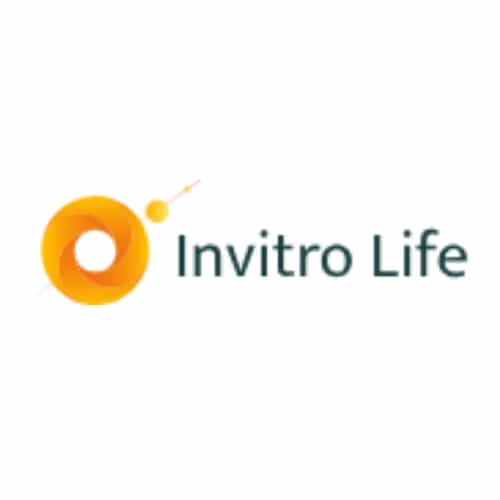
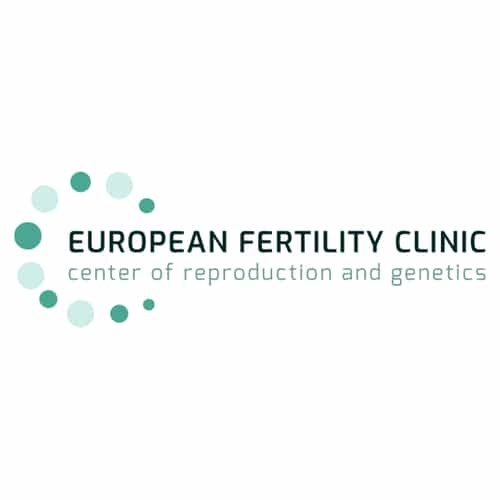


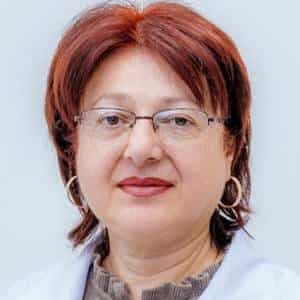

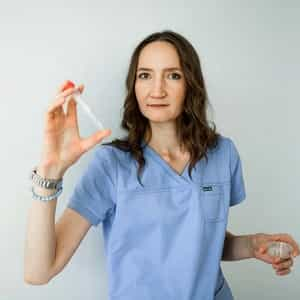
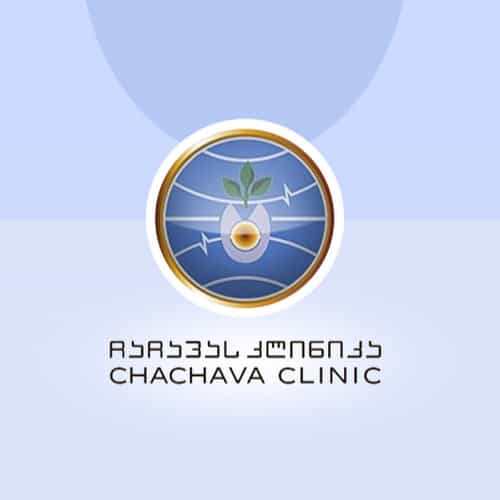



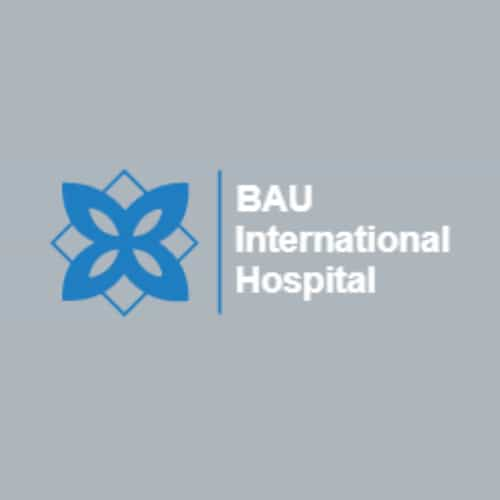
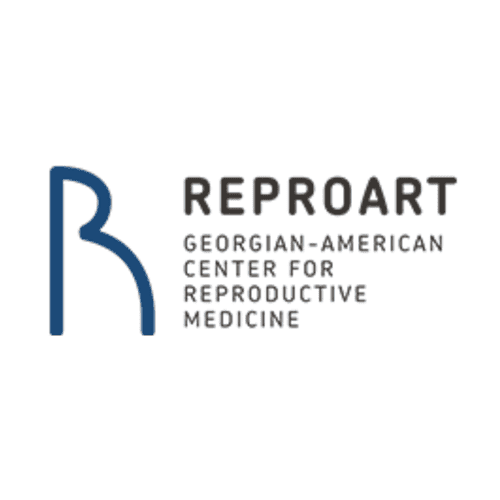




.png)

.png)
.png)

I am so pleased and grateful to have my baby with the help of the World Center of Baby. Everyone at this clinic is highly professional and truly caring. The specialists are excellent and supported me at every step of the journey. They did everything perfectly, and I could not be happier with the results. I highly recommend this clinic.
Read More